How Long Should I Keep Tax Documents?
Is paperwork building up in your home office? Are you considering a second filing cabinet for all those important records? Maybe you’ve opted for digital storage instead, so you have a drawer full of unmarked USB drives. Clients often ask, “Just how long do you need to hang on to all those old tax documents anyway?”
The Statute of Limitations
Returns are selected for audit based on a score calculated by how much the return differs from other returns with similar types of activity. A smaller set of returns are selected for a more thorough audit on a more or less random basis, to serve as baseline quality control.
The statute of limitations typically allows the later of three years from the date that the return is filed or two years from the date the tax is paid to question items or assess additional tax. Returns timely filed and taxes timely paid before the due date are considered to be filed or paid on the due date. Returns that are filed late will have a proportionally later closure date. Returns that are never filed do not have a closure date. For this reason, all taxpayers are highly encouraged to file a return every year, even if they do not owe tax.
If you are selected for audit during the three years, do not destroy any relevant papers, even if the statute of limitations will pass before the audit is completed. The IRS will typically issue a letter asking for an extension of the statute of limitations. While you cannot be compelled to extend, it is generally not to the taxpayer’s benefit to disagree, as the IRS will make an assessment based only on the information available and assessments based on limited information tend to be harsh. Should the taxpayer wish to contest the new assessment, he or she then must go to tax court, which will usually result in being thrown back into completing the audit process. See IRS Publication 1035 for more information.
If general, if you are not selected for audit, you may destroy the relevant papers after three years. However, there are a few exceptions. In addition, returns omitting 25% or more of income that should have been reported have an extended statute of limitations of six years and there is no statute of limitation for false or fraudulent returns, so you must keep your records indefinitely.
Of course, we, at TRKM, recommend that rather than trying to remember the exceptions, you report all of your income correctly and choose not to file false or fraudulent returns. On the other hand, the extended statute of limitations also means that a fraudster attempting to file a false return on your behalf has an indefinite amount of time to be caught, not least because there is also no statute of limitations on forgery.
Businesses should keep records for a minimum of four years, to allow for the three years from the filing date of employees’ personal returns. Documents to be retained include all payroll data and employee information, W-4s, payroll returns, dates and amounts of withholding deposits, worker health coverage forms and any filed 1094 and 1095 forms.
Other Documents
Though three years is the rule for tax returns, there are a few documents you should consider keeping around longer.
Gains and losses on capital items are calculated by the difference between the historical purchase price that the seller originally paid and the current sales price, not based on an appraised or market value. If you made a large purchase that might qualify for capital gains in the future, such as a house, land, antiques, art, or financial instruments such as stocks or bonds, remember to keep a record of the original transaction so that your tax preparer will be able to accurately calculate your gain or loss. Otherwise, you could end up paying much more than you really owe. If you happen to pass on any capital items through gift or inheritance, make sure to also pass on the paperwork. In most cases, it is the donor’s original basis, not the basis at the time of transfer, which applies. If you inherit capital items, make sure to keep the original paperwork around to help you establish basis.
Be sure to keep documents for at least three years after selling or otherwise disposing of the property. Also remember to keep records for any ongoing business property subject to depreciation such as equipment, business startup costs, and anything that gives rise to a like-kind exchange. The long-lived nature of some assets means that records might have to stick around for decades.
In addition, if you have specific items on your tax return such as IRA contributions or carryforwards of things like NOLs or Charitable Contributions, it is best to retain the supporting documentation and the return on which the item was generated.
Storage Solutions
While tax preparers usually also retain copies, it is ultimately the taxpayer’s responsibility to keep his or her own records. It is advisable to keep at least two copies in different locations, just in case the building should suffer some kind of paper-destroying calamity. Computer backups are good for saving space and have the bonus of not causing the same fire hazard as a large volume of paper, but are vulnerable to crashes and other technological failures. Cloud storage increases accessibility and isn’t vulnerable to single machine failures, but can be accidentally changed or deleted from the source from multiple access points. Putting documents on a USB drive is a good medium, but a USB drive is still a small object that is fragile, easily misplaced, and subject to the same weaknesses as paper. In addition, you must remember to periodically conduct a manual backup to ensure that your copies remain up to date.
Each taxpayer’s specific needs and circumstances may vary*, but in general it is best practice to keep paper copies in a locked cabinet at home along with a USB disk with the documents saved in PDF format in a secure off-site location such as a safety deposit box. With the tax preparer’s copies as a third safeguard, you should be all set to provide supporting documentation for any audit that comes your way.
*All computer owners are recommended to use an automatic cloud backup service to avoid losing photos, projects and other working files stored on the hard drive in case of catastrophe, but it is not necessary for historical tax documents in particular because they typically do not change after the filing date.
Disposal
As unappealing and unlikely as the idea of someone sifting through your garbage bins may seem, it’s better to be safe. Any documents with sensitive information such as social security numbers, personal identification numbers, banking information, or birth dates, should be shredded. If you don’t have access to a shredder, it is also acceptable to mark out the information with a permanent marker before disposal, so that it cannot be easily recovered. Be especially careful if you recycle your paper waste, as recyclables tend not to be mixed with organic matter, such as food scraps, that may dissuade trash digging and encourage the paper to decompose.
Additional Resources





